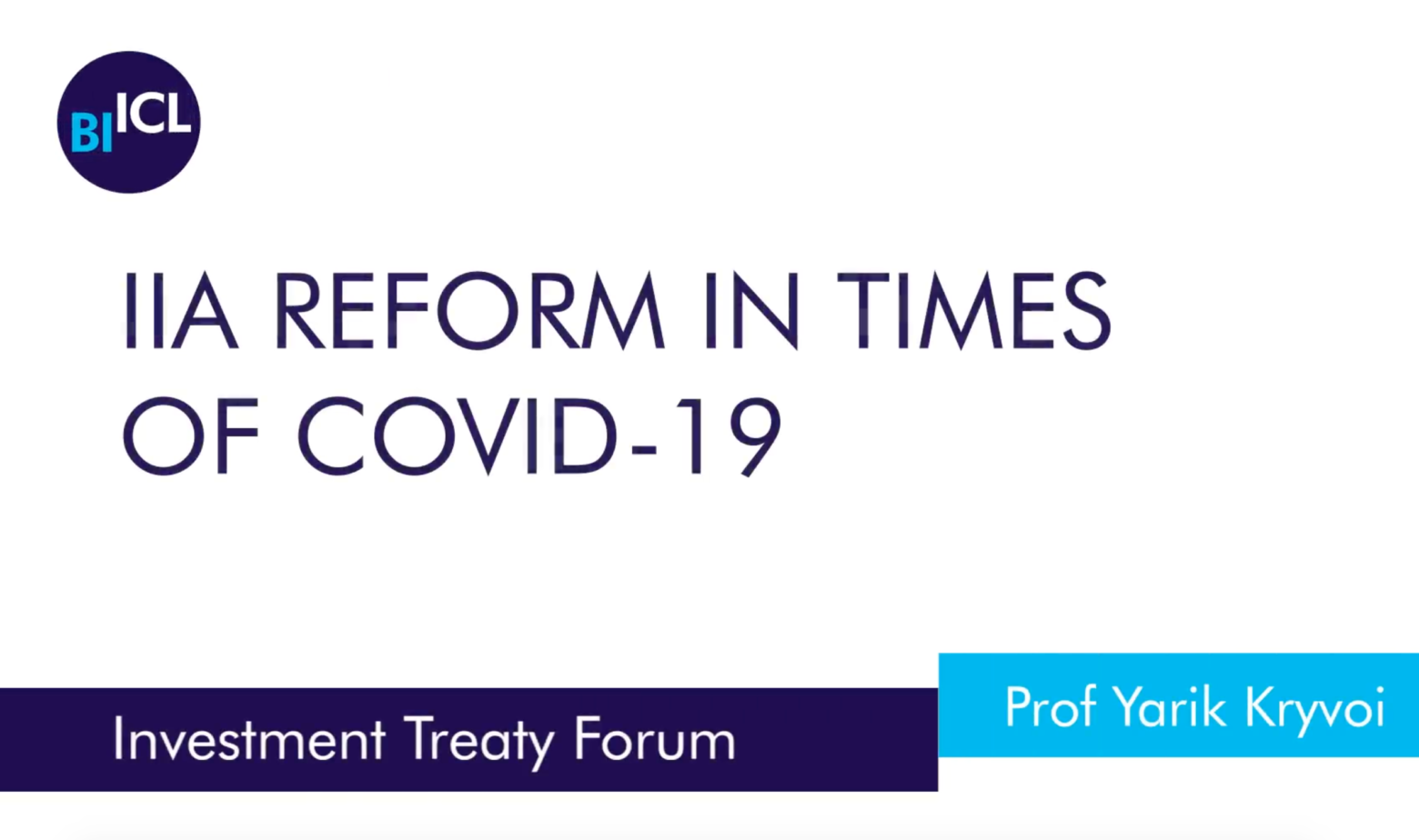In my contribution to the UNCTAD’s Virtual IIA Conference 2020: “IIA Reform in Times of COVID-19,” I highlighted a few projects we recently concluded or are currently working on. Below is a video recording of the presentation and its transcript.
Every crisis is also an opportunity. In the area of international investment law, the opportunity is to reexamine and strike a better balance between the need to regulate in the public interest and protecting foreign investments.
In September 2020, the Investment Treaty Forum conducted a 2-day conference ‘State Regulatory Powers and their Limits’, which highlighted the sense of urgency to reform. It also became clear from many presentations that regulatory measures to tackle unforeseeable circumstances cannot constitute a breach of investors’ legitimate expectations, without further state assurances. The recording of this conference is available online.
Let me focus this presentation on four main areas, which in my view require urgent attention. First, the need to facilitate the role of international investment law in combating corruption and money laundering. Second, the need to provide greater certainty on the effect of corporate restructuring on ISDS. Third, the need to tackle inequalities resulting from ISDS. And, finally, the need to strengthen the capacity building of developing states for treaty-making and ISDS.
First, international investment law and corruption. The use of multiple corporate entities by foreign investors creates a potential to misuse the system of ISDS to launder money or hide corruption. Currently, I co-chair an Expert Group created by the UN Office on Drugs and Crime to examine corruption in the context of foreign direct investments. We already put together a dataset with all investor-state disputes, which involved allegations of corruption. We are currently working to formulate recommendations on how international investment agreements should be changed.
More specifically, we examine the possibility of introducing corruption due diligence obligations both on investors and states. The idea is that only having met this obligation, investors can resort to investor-state disputes and on the other hand, states can assert corruption as a jurisdictional defence. International investment agreements can specifically provide for such an obligation. Our Expert Group plans to conclude its work and publish a report in the first half of 2021 and the UNODC will make it available on its web site.
Second, corporate restructuring and ISDS. Both investors and states need to have greater legal certainty on the protected investment and investor in international investment agreements. We recently conducted an empirical study on corporate restructuring and investment treaty protections with a leading law firm. It shows international investment tribunals have already developed consistent approaches on a number of relevant issues.
For example, tribunals in over 90% of cases decline jurisdiction if the claimant that does not engage in any genuine economic activity in the respondent state. The study also demonstrates that if the sole purpose of the corporate restructuring was to access ISDS, tribunals reject jurisdiction in nearly 80% of cases. However, it takes a significant amount if time and money for tribunals to reach these outcomes. International investment agreements should become more clear on these issues.
Third, the need to tackle inequalities resulting from ISDS. In another recent paper, we showed that international investment law’s asymmetric model giving the foreign investor only rights and the host state only obligations no longer reflects the new economic and political realities. The equilibrium between corporate and state actors has significantly shifted in recent decades and international investment law should be reformed accordingly. To tackle this issue, the study proposes several measures including strengthening the capacity of states to avoid and better handle investor-state disputes.
Developing states often lack their own expertise in handling investor-state disputes and reforming international investment agreements. Therefore, the efforts to create an Advisory Centre on International Investment Law discussed within UNCITRAL and initiatives such as the UNCTAD’s International Investment Agreements Reform Accelerator are welcome steps. This year our Institute launched an online course on ‘International Investment Law and Dispute Resolution,’ which featuring leading practitioners and arbitrators. It proved to be particularly popular with government lawyers and law firms.
To strengthen the capacity of governments, this year we decided to offer free membership in the Investment Treaty Forum to representatives of all states, which allows them to attend events and access event recordings for free and contribute to discussions with practitioners, scholars and policymakers.
This and other conference presentations are available on the UNCTAD’s conference page.
Yarik Kryvoi
British Institute of International and Comparative Law
